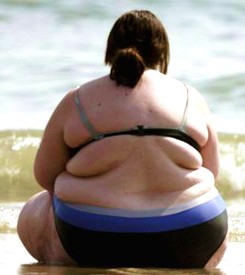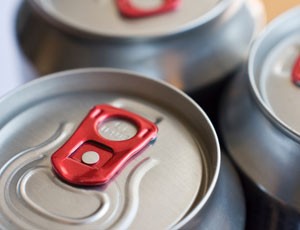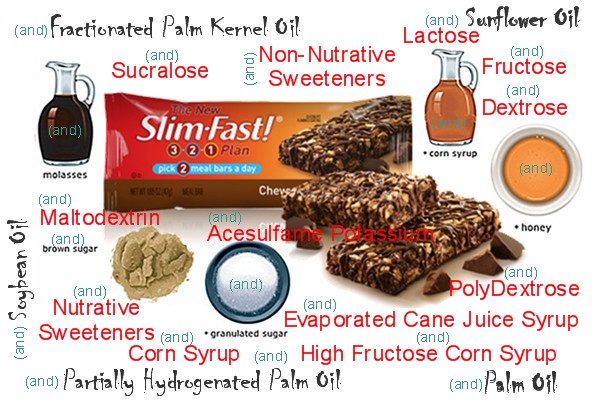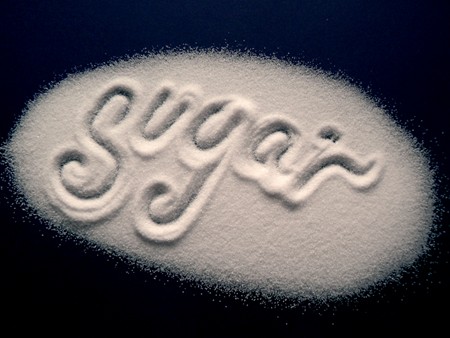
What if being fat wasnt your fault? Not entirely anyway!
Whatever fad diet books tell you, the single most important factor affecting weight gain is the ratio of calories consumed to calories burned. Eat more than you work off, and youll gain weight.
But in recent years weve witnessed a flurry of research showing that theres more at work than this simple formula. Why do some people pack on pounds, while others subject themselves to rigorous diets and workout regimens only to struggle with stubborn belly fat?
The answer has a lot to do with that mystery of mysteries, the metabolism, which like everything is influenced both by ones genetics and ones environment. The environment, in this case, includes more than just nutrition and exercise; it includes chemical exposures. Heres a look at some of the factors scientists believe may be affecting whether or not we put on weight.
OBESOGENS

Never heard of obesogens? Thats because its a scientific term for chemicals that mess with the hormones that regulate our metabolism, and cause us to gain weight.
In recent years, scientists have studied all sorts of substances they call them endocrine-disrupting chemicals that our bodies mistake for hormones. The endocrine system regulates the bodys reproduction, development and metabolism, and most research to date has focused on the reproductive and developmental effects of these chemicals. Just like hormones, they may change our bodies in ways both subtle and profound, even at minute concentrations.
The timing of exposure is key, and most chemicals seem to cause the most changes when pregnant women or very young children are exposed. The future health of your children is one key reason to remove the chemicals from your home NOW!
Several studies point to links between manmade chemicals and weight gain. Here are a few:
Bisphenol A
This common chemical, which is used in a variety of plastics and in the lining of food and drink cans, can leach into foods (or directly into the bodies of babies chewing on teethers or toys) and the Centers for Disease Control and Prevention has found it in about 9 of 10 Americans tested. The Food and Drug Administration and the chemical industry stand by its safety, but a growing body of evidence by independent scientists has persuaded several governments (Minnesota, Chicago, Suffolk County, N.Y., and Canada) that it should not be used in childrens products.
Some of that research suggests that Bisphenol A a synthetic estrogen makes lab rats pack on extra weight,regardless of their diet. In humans, it has been linked to heart disease, diabetes and other symptoms of metabolic syndrome in humans, possibly by interfering with a beneficial hormone. To avoid Bisphenol A, avoid No. 7 plastics, use a stainless steel reusable water bottle, limit your consumption of canned foods and drinks, dont microwave foods in plastic and look for products explicitly marked BPA free.
PFOA and PFOS
Perfluorooctanoic acid and perfluorooctane sulfonate are the chemicals that makes nonstick pans, grease-resistant paper and stain-resistant clothing, carpets and furniture withstand oils. Were exposed our entire lives, and the exposure in the womb may be the most important, according to one study. Several studies have shown that the chemicals lead to lowered birth weight, but one showed that the initial drop in birth weight is followed by a rapid gaining of weight that is associated with obesity throughout life.
To avoid these chemicals, think twice before buying stain-resistant and nonstick products (cast iron is one good alternative in the kitchen) and limit your intake of fast foods, microwave popcorn and other foods that may be wrapped in grease-proof paper.
Phthalates
Another common chemical, phthalates are found in soft plastics, fragrances and many other consumer products. The U.S. recently banned the use of several phthalates in childrens products, because of evidence that early exposure affects the normal development of boys by reducing testosterone levels.One study showed that adult men with the most evidence of exposure to phthalates had fatter bellies.
To avoid phthalates, avoid No. 3 plastics, and scrutinize the ingredients of products for fragrances or the acronyms DBP, DEP, DMP, DEHP, BxBP or DMP all of which signal the presence of phthalates.
Dioxins
Formed as a byproduct of burning, dioxins are common and known to be harmful at minute levels. (Whereas the Environmental Protection Agency measures most pollutants in pounds, it measures dioxins in grams.) Dioxin rains down after being emitted by smokestacks, tailpipes and fires, and it contaminates farms, leaving us to be exposed when we eat meat, dairy and fish products.
One study showed that those who had been exposed to the highest levels of dioxins were five times more likely to have metabolic syndrome, a collection of metabolic conditions that includes obesity, glucose intolerance and hypertension.
To avoid exposure to dioxins, moderate your intake of beef, pork and dairy products, and choose lean cuts of meat to avoid dioxin stored in fats.
Pesticides
Several pesticides are known or suspected to be endocrine-disrupting chemicals. Among the suspects istributyltin, which was used in anti-fungal boat paints and to kill pests on some food crops, and which maytrigger obesity.
On golf courses, workers who handled the pesticide tricholorfon had an 85%-250% greater risk of developing diabetes, depending on how frequently they handled the chemical. Children born to mothers with higher levels of the pesticide hexachlorobenzene in cord blood were significantly more likely to be overweight and obese by the age of 6.
In a recent study, rats fed water laced with atrazine, a weed killer commonly used on U.S. corn crops (but banned in much of the world) gained 5%-10% more weight than rats that werent exposed to the chemical. Those fed weed killer and a high-fat diet gained the most weight, but even rats that ate a healthy diet ended up about 5% fatter if they drank the tainted water.
To avoid these and other pesticides, avoid using insect and weed killers around the home, and avoid foods with the most pesticide residue.
According to Frederick vom Saal, Ph.D., professor of biological sciences at the University of Missouri, “Obesogens are thought to act by hijacking the regulatory systems that control body weight.” You can read more about this here Daily chemical exposure increases weight gain and health risks
In addition, EDCs are stored in the fatty tissue of the body to protect the critical organs from the damaging effects of these chemicals. Do we really want this crap bulking up our fat cells?
Ill be writing a lot about cleaning up our household environment because what we ingest, breath in, and put on our bodies directly affects our weight. If our bodies are working so hard to rid us of toxins, theyre forever in an emergency mode and they cant do the all important work of regulating all of our systems; ie, our metabolism, regulatory system, etc.
Chemicals matter and ridding your home of all chemicals is an important first step in weight loss recovery!









Leave a Reply